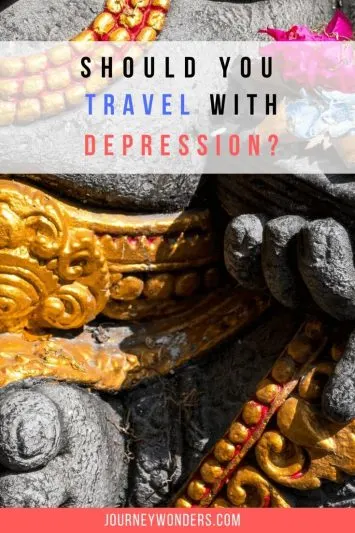Mental Health, of which depression is the most common affliction, is one of the most misunderstood issues in our modern society and that’s why awareness is key in order to break down the misconceptions and stigmas often associated with it.
Today, we have a special guest post by Travel Blogger Sarah of The Girl With the Map Tattoo, about how she’s able to travel while dealing with depression. Break a leg, Sarah, the floor is all yours!!!
Recently, I shared a long post on my own blog, The Girl With the Map Tattoo, about travelling with depression. It was shared across multiple social networks and I had a lot of friends, other bloggers, and complete strangers reach out and say how brave I was for sharing my ordeal.
Why was I brave though? There are millions of people that suffer from depression, and probably millions more that might but are too afraid of their own feelings to talk about it with anyone.
Was I brave because I’m a solo traveller, and I shared it? Maybe so, but I’ve met plenty of other solo travellers and we all seem to go through the motions at times, not really feeling our place or having a clear destination in mind.
It’s certainly not an easy topic to talk about, because the problems that often manifest during a bout of depression stem from personal problems, and there are both friends and family that do not want that “dirty laundry” aired across social media or on a growing blog.
It’s time though, to really talk about it. To get it all out there and open up to the world about travelling with depression and why it’s such a big deal.
It’s not a question of being afraid, or of being worried, or of being sad. Travelling with depression means going from high to low in a matter of hours, from watching from the outside wanting to be in, from feeling helpless or useless, crying for no reason, drinking more, and sleeping all the time.
Depression affects more than your travels. It affects the way you perceive a place, the way you act in a place, and the way you understand a place.
I have been trying to change my mindset as I transition from traveling through New Zealand and Australia to Asia and then north. It’s a wildly different world, the west to the east.
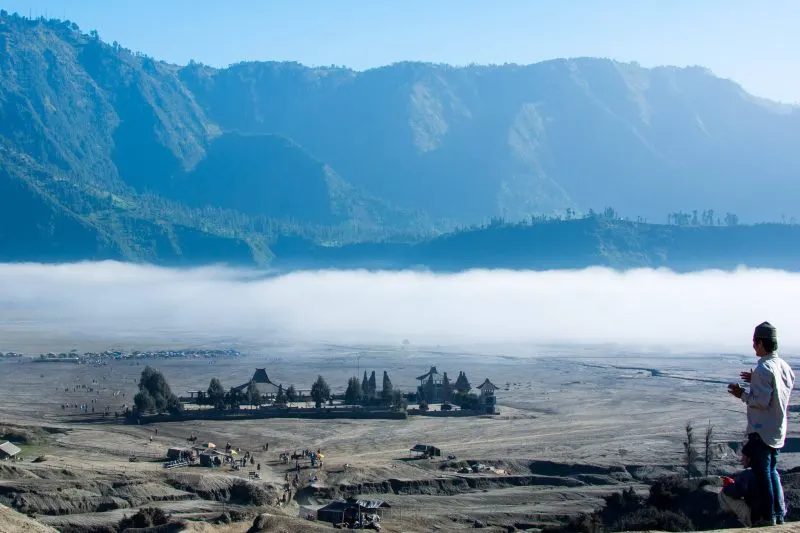
Understanding what depression is and how it can affect anyone
My first bouts with depression likely went unnoticed. I was in high school, so anyone would have attributed it to feeling like a teenager – just moody, sullen, and annoyed with my elders.
In university, it would have been attributed to the stresses of my degree and the uncertainty of what to do afterwards. The economy was sinking throughout my junior and senior years, and by the time I graduated no one was hiring.
The Great Recession had started and finding a job as an inexperienced designer was like seeking the Holy Grail – not impossible, but not possible.
I fled to the UK, where I pursued a masters degree in Scotland. There, depression may have been seen as seasonal affective disorder, when the nights were long and the days grey and short.
It wasn’t until I was back home in Kansas City (one could very well argue that Kansas City’s killer commutes can be another likely source of depression) working three jobs to cover my rent, keep house, and sustain a relationship that someone recognized the signs of depression.
I hated the fact that I was no longer in the UK. I was angry at myself for failing to secure a visa to stay and work. Finding a job in the US was still difficult.
I spent days – hours upon hours – trying to procure interviews with designers, and failing. I spent time with a headhunter in New York who basically told me I would never be a designer. I was in a quickly failing relationship, but it was actually my boyfriend who pushed me to go to therapy.
For most of my early adult life, I was compared to my cousins and brothers. Six of us are very close in age and (as one of the oldest) it was expected that I would have a well-paying job post graduation, one which my younger brothers and cousins would be held standard to.
Unfortunately, my path didn’t go that way, so I began to feel judged by my brothers, my parents, my grandparents, and aunts, uncles, and cousins. My grandparents, especially, began to look down on my life. I worked in a restaurant, not an office. I was a public relations coordinator for a while but that ended when the restaurant closed.
I worked as a hostess, then a front of house manager. These jobs were menial and didn’t pay great, so I was always living paycheck to paycheck. My boyfriend, who had a bigger salary, covered most of the rent but I paid for the dog bills and food. I also had an image to maintain if I wanted a job with a design firm, so I bought creative business clothes to wear at the front of house and to nonexistent interviews.
As you can imagine, It wasn’t an ideal situation to be in. My car wasn’t mine, I drove one of my parents’ cars. I could barely afford groceries. The seriousness of the situation kicked in multiple times.
My boyfriend began to work longer hours – or at least tell me he was at work. We lived close and I would sometimes run up there when I got off work.
Often, his car wasn’t in the parking lot. I’d call, and he wouldn’t answer. I’d call the bar and someone would tell me he’d just “run across to” the other bar; he’d call me when he was back. A suspicious nature kicked in but I couldn’t catch him at anything.
We fought often, over the stupidest stuff, and more nights than not he slept on the couch. I was miserable. He told me, in an ultimatum, that if I didn’t go see a therapist he was going to break up with me. I found one online, one just around the corner from me, and went in for an appointment.
He prescribed drugs and then sent me to his colleague for actual therapy.
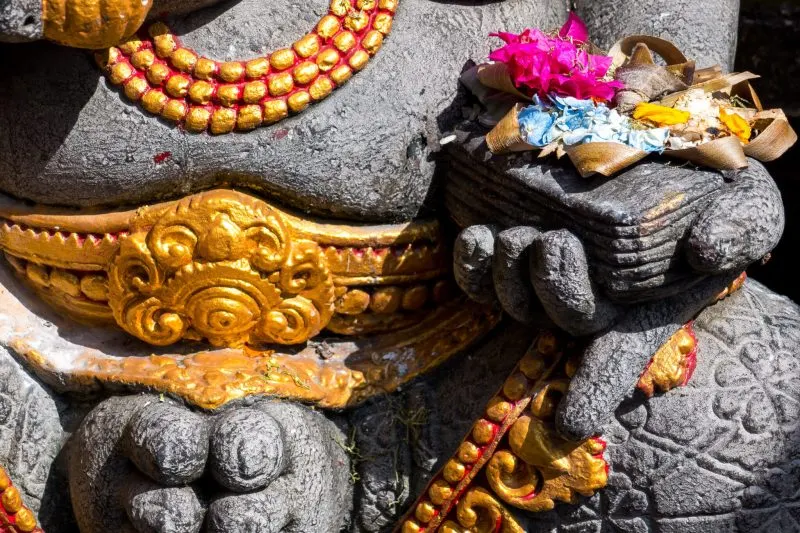
Dealing with depression back home, Sarah’s life story about her struggle with depression
For a few months, I saw her twice a week. I never told anyone about it, except for my boyfriend, and we never discussed the sessions. They were mine to keep to myself. Now, looking back, I wish more people had known. I wish that depression wasn’t a subject that everyone pushed under the rug.
I have no idea if anyone else in my family suffers from depression. I don’t know how my mother feels, spending most of the week separate from my father. Did my grandpa suffer from PTSD? I will never know because no one ever talked about it.
Later that summer, I took a family cruise. People spent the week screaming at each other, belittling life choices, telling each other why they hated them.
My uncle saw me at the dinner table and refused to sit next to me; I don’t know why and no one ever explained that. I sought solace – like so many others do – in a bottle of wine. I hid out with caffeinated tea at 2 in the morning and woke up at 7.
Half of the family belonged to a clique that the rest of us weren’t invited to. Meals were awkward if you were at the wrong table, outings were unbearable. Inside jokes ran rampant and I felt like an outsider with these people that were supposedly family. That trip was the last time I spoke to several family members for over four years, some I still don’t speak to.
My therapist asked about the trip and I spilled everything. Somewhere in the back of my mind, I decided that my family was the cause of my sadness. Three months later, I cut my ties and I left town. I went to work onboard a small cruise ship for three and a half years and then I kept going.
I stopped taking the drugs about six months into my cruise contract. I felt happy, felt alive. The drugs had made me gain weight and break out. When I stopped, I felt more active and had more energy.
Four years after that fateful family cruise, I quit my job and went walkabout. I lived in New Zealand, then Australia, then Indonesia (read all about the Dark Side of Bali here)… some places I lived in for more than a year, others for a few months, some only a month.
I wasn’t going to let depression stop me from traveling.
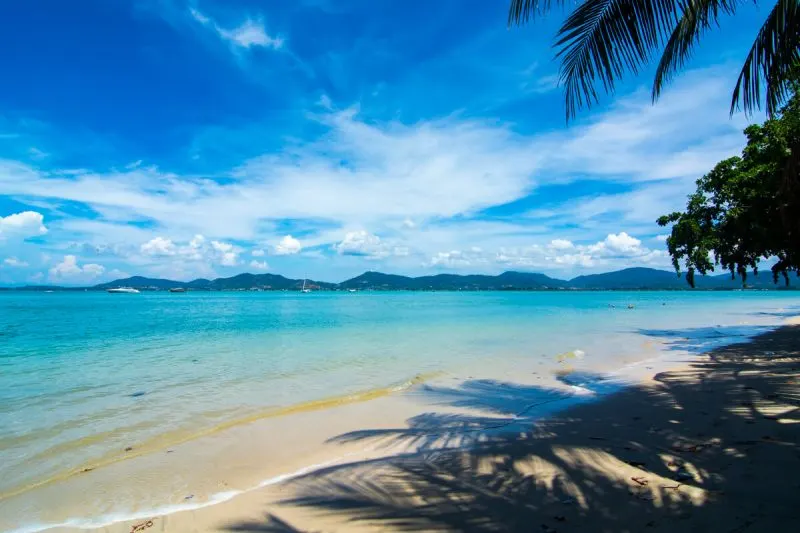
How it’s like to travel with depression and what you can do about it
Over the last eighteen months, traveling solo, depression has flared up from time to time. Often it occurs when I’ve been alone for a long time, or when I hear a song or read news from home that makes me sad.
My most recent bout of depression, the one I wrote about, was following news that someone I very much liked had met a girl within a few day of me leaving town. It spiralled me into a funk – was I destined to be perpetually single? Was I not likable? Not dateable? “Used,” or “damaged,” goods?
Sometimes it can be a result of worrying about what’s happening back at home. You might have left a dog home using an invisible dog fence, perhaps being looked after by a neighbor, and you could be worried about whether they are being cared for properly. Or maybe you are worried about your friends and relatives. These are the kinds of worries that can bring about depression.
Was my traveling not conducive to meeting a decent guy? All the ones I’d met on the road were manwhores, fuckboys, whatever you want to call them (check out the 10 Commandments of Dating and Travel here).
News that close friends were pregnant after months of trying was exciting but I started to feel as though I was missing out on something. That I was behind in whatever race we were all in.
Sometimes depression flares up even when I feel happy. A song, at the moment it’s Ed Sheeran’s Castle on the Hill, will kick me in the stomach and I’ll tear up. I’ve been alone, sometimes lonely, for more than 18 months. I spent two months camping in my car around New Zealand.
When I met people to travel with, even for a brief period of time, I was loathe to let them go again. I cope with the odd bout, sometimes more frequent than others, by contacting people at home. Hearing a familiar voice can calm any bad moment, no matter how far away that person is.
Right after my bad moment, I ran into a younger girl at a hostel in Perth. She was curled up in her bed and when I asked her how she was, she turned to me with a tear-stained face. She didn’t know what to do, she wanted to go home.
She was incredibly homesick, but she’d been offered a job in the outback and was supposed to go the next morning. I began talking slowly, sharing my story from the weekend before, and urging her to keep going. She opened up, talking about how much she missed her boyfriend and how she’d almost gone to the airport that day.
In the end, the next morning, she was headed to the bus station to catch a bus to the outback. Remember, you can always go home, or at least always leave where you are. Whether you have to take an overnight bus or can catch the next flight, there is always a way out.
It sounds cliche, but I recommend talking to someone if you feel upset. Even a simple “hi” can open doors to a new group of friends or just a person to have a quiet dinner with (although dining alone ain’t that bad in some occasions).
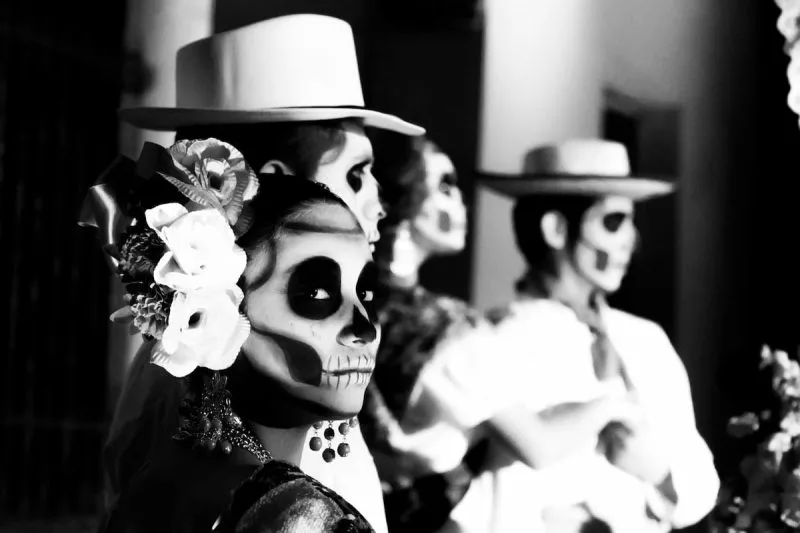
Should You Travel if You’re Suffering from Depression?
Getting some alone time can have a positive or negative effect, depending on your travels. If you’re traveling solo, you may find, like I did, that being alone in a car with your thoughts for six hours only exaggerates the issue.
On the flip side, if you’re with friends, taking a walk down a beach by yourself or taking a night to yourself can be therapeutic.
I promised myself that this would be a short post about traveling with depression and how to cope with it, but it’s a conversation we can have again and again, with new causes and new effects. Luckily, mental health has recently become a pretty large issue in most western countries.
The Duke and Duchess of Cambridge, along with the Prince Harry, are the faces of the London Marathon and openly promoting mental health with their chosen campaign, Heads Together, under their Royal Foundation.
Slowly but surely, mental health is being talked about. American companies are slow to consider mental health a true sickness, but European and Japanese companies gladly let employees take days off. Mental Health Month kicked off May 1st, as well, so this article is incredibly timely.
For me, I took the next step. I left Australia on schedule and spent a month in Indonesia, a weekend in Singapore, and a week in Malaysia. At the moment, I am debating how long to stay in Nepal for, and where to go next.
Life moves pretty fast, as they say, and if you don’t stop and look around once in a while, you could miss it. Depression can cloud a memory but I’m not going to let it cloud my life…
Sarah Elisabeth is a travel expert and curator with a specialty in New Zealand and Scotland. You can follow her on Facebook, Instagram and Twitter. I hope you have enjoyed this Guest Post of Wonders my friends.
Have you ever traveled while being depressed? How was your experience like? What other topics would you like to see covered in Journey Wonders? Have a nice week and until next time, everybody!!!
